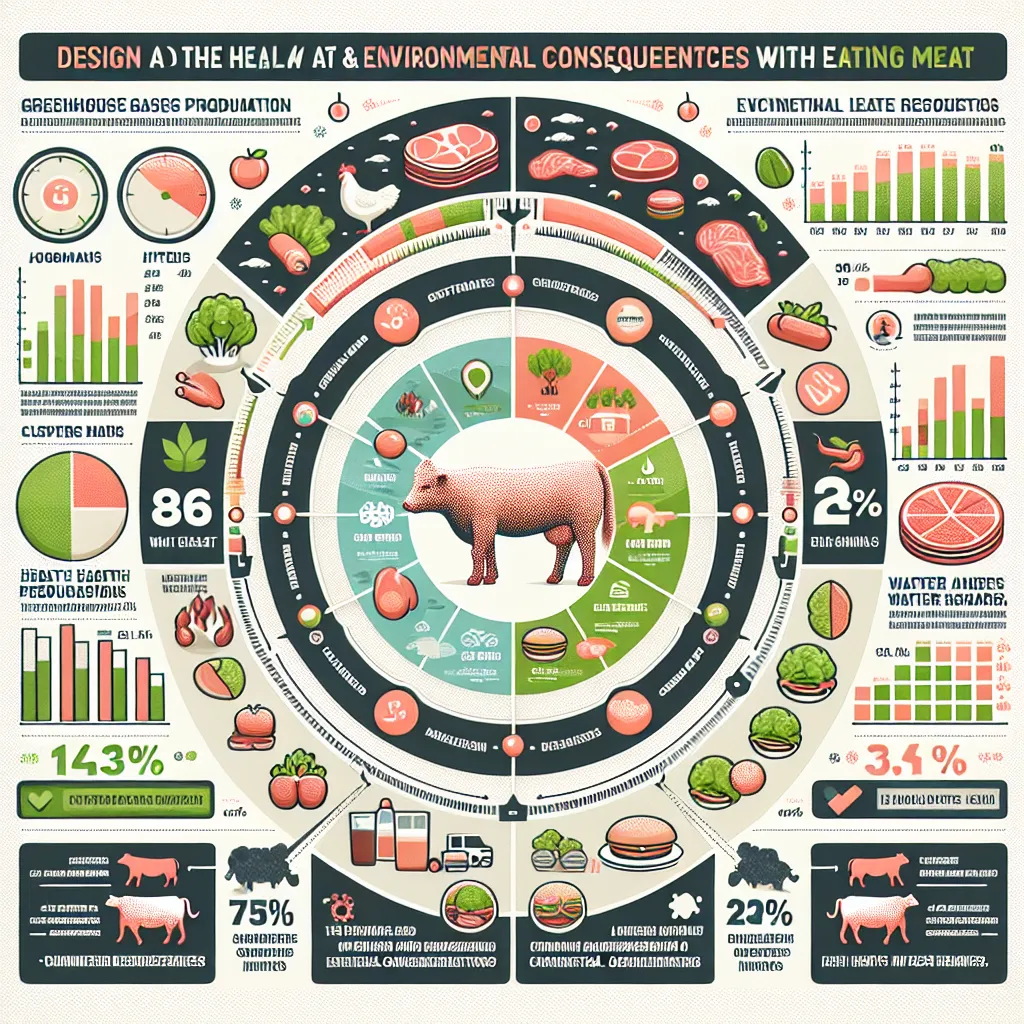As an IELTS Writing Task 2 expert, I’ve noticed that topics related to reducing meat consumption have become increasingly prevalent in recent years. This trend is likely to continue due to growing global concerns about health and environmental issues. Let’s explore a sample question on this subject and provide a model answer that meets the IELTS Writing Task 2 band 7-8 criteria.
Analyzing the Topic
The topic of reducing meat consumption for health and environmental reasons is multifaceted and can be approached from various angles. It often appears in IELTS Writing Task 2 questions, either as a direct topic or as part of broader discussions on diet, sustainability, or climate change.
Sample Question
Let’s consider the following question, which is representative of the type you might encounter in an IELTS Writing Task 2 exam:
Many people believe that reducing meat consumption is essential for both personal health and environmental protection. To what extent do you agree or disagree with this statement?
Question Analysis
This question requires you to:
- Discuss the relationship between meat consumption, personal health, and environmental protection.
- Express your opinion on whether reducing meat consumption is essential for these factors.
- Provide reasons and examples to support your viewpoint.
Model Answer
Here’s a model answer that addresses the question effectively:
In recent years, there has been a growing debate about the impact of meat consumption on both individual health and the environment. While some argue that reducing meat intake is crucial for personal well-being and ecological sustainability, others contend that moderate meat consumption can be part of a balanced lifestyle. In my opinion, while completely eliminating meat from one’s diet may not be necessary for everyone, there are significant benefits to reducing meat consumption for both health and environmental reasons.
From a health perspective, numerous studies have linked high levels of meat consumption, particularly red and processed meats, to various health issues. These include an increased risk of heart disease, certain types of cancer, and obesity. By reducing meat intake and incorporating more plant-based foods into their diets, individuals can potentially lower their risk of these health problems. Moreover, a diet rich in fruits, vegetables, and whole grains often provides essential nutrients and fiber that may be lacking in meat-heavy diets, contributing to overall better health outcomes.
Environmentally, the meat industry has a substantial impact on our planet. Livestock farming is a significant contributor to greenhouse gas emissions, deforestation, and water pollution. The production of meat, especially beef, requires vast amounts of land, water, and energy resources. By reducing meat consumption, we can help mitigate these environmental pressures. For instance, choosing plant-based proteins over meat even a few times a week can significantly reduce an individual’s carbon footprint and contribute to more sustainable land use practices.
However, it is important to acknowledge that meat can be part of a healthy diet when consumed in moderation. It provides essential nutrients such as protein, iron, and vitamin B12, which are crucial for various bodily functions. Additionally, in some regions, livestock farming plays a vital role in local economies and food security. Therefore, while reducing meat consumption is beneficial, a balanced approach that considers individual nutritional needs and cultural contexts may be more realistic and sustainable for many people.
In conclusion, while I agree that reducing meat consumption can have significant positive impacts on both personal health and the environment, I believe that a nuanced approach is necessary. Encouraging a shift towards more plant-based diets, promoting sustainable farming practices, and educating people about the impacts of their food choices are all crucial steps. Ultimately, even moderate reductions in meat consumption across populations could lead to substantial benefits for public health and environmental sustainability.
(Word count: 399)

Writing Tips
When addressing this topic, consider the following:
-
Balanced argument: Present both sides of the debate, acknowledging the benefits of meat consumption while emphasizing the advantages of reduction.
-
Specific examples: Include concrete examples of how reducing meat consumption can benefit health and the environment.
-
Cohesive structure: Ensure your paragraphs flow logically, using appropriate transition words and phrases.
-
Varied vocabulary: Use a range of words related to health, environment, and diet to demonstrate lexical resource.
Key Vocabulary
Here are some important words and phrases to remember when writing about this topic:
-
Sustainable (adjective) /səˈsteɪnəbl/: Able to be maintained at a certain rate or level.
-
Greenhouse gas emissions (noun phrase) /ˈɡriːnhaʊs ɡæs ɪˈmɪʃənz/: The release of gases that contribute to the greenhouse effect.
-
Plant-based (adjective) /plɑːnt beɪst/: Made entirely from plants or plant products.
-
Carbon footprint (noun) /ˈkɑːbən ˈfʊtprɪnt/: The amount of carbon dioxide released into the atmosphere as a result of one’s activities.
-
Ecological (adjective) /ˌiːkəˈlɒdʒɪkl/: Relating to or concerned with the relation of living organisms to one another and to their physical surroundings.
-
Nutrient-dense (adjective) /ˈnjuːtriənt dens/: Containing a high concentration of essential nutrients relative to its calorie content.
-
Moderation (noun) /ˌmɒdəˈreɪʃn/: The avoidance of excess or extremes, especially in one’s behavior or political opinions.
Conclusion
The topic of reducing meat consumption for health and environmental reasons is likely to remain relevant in IELTS Writing Task 2. To prepare effectively, practice writing essays on related themes such as:
- The role of individual dietary choices in combating climate change
- The impact of the food industry on global sustainability
- Balancing personal health with environmental responsibility through diet
- The challenges and benefits of transitioning to a more plant-based diet
Remember to always analyze the question carefully, plan your response, and use a range of vocabulary and grammatical structures to showcase your English language skills.